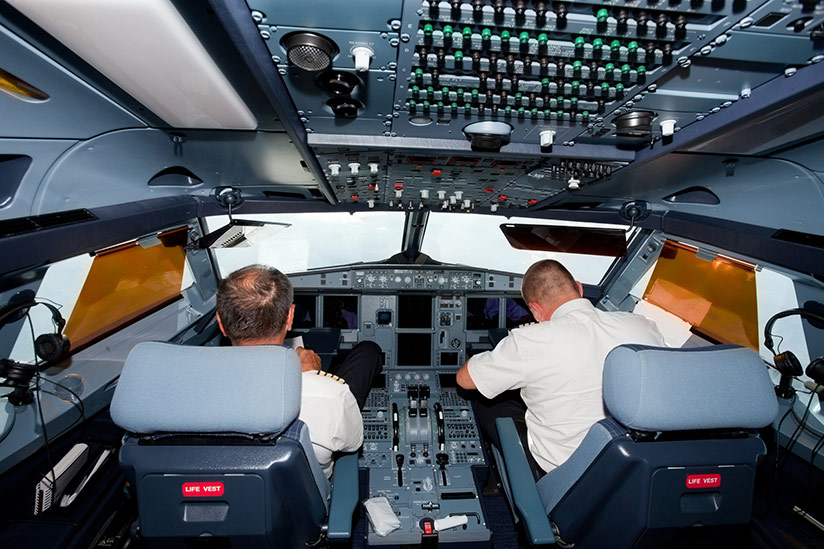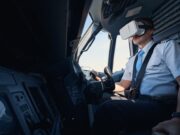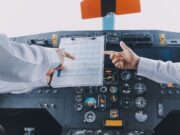
The aviation community must overhaul its traditional methods of learning about safety issues to examine not only accidents, incidents and other problems in flight but also situations in which everything went right, Flight Safety Foundation says.
In its recent report, “Learning From All Operations, Expanding the Field of Vision to Improve Aviation Safety,” said the industry should implement a “fundamental shift” in its approach to learning about safety.
“In an increasingly interconnected and complex aviation system, it is imperative to learn not only from things that rarely go wrong but also from things that go right,” the Foundation said. “Data collection needs to expand from a focus on hazardous events to analysis of routine operational data. While it will continue to be essential to identify hazards and manage risks, organisations should also analyse data that lead to new insights from everyday work across all types of outcomes – insights that enable learning that is more frequent, sensitive and timely.”
The approach to learning outlined in the report constitutes a “safety mindset that expands our understanding of what constitutes a safety-relevant event and improves our ability to learn from everyday work,” the Foundation said.
Most operations have implemented safety management systems (SMS), which typically incorporate safety reporting systems and flight data monitoring – an approach that is more likely to focus on “the absence of safety, rather than its presence,” the report said.
Although flight data recorders collect information on everyday operations, flight data monitoring programs usually analyze that information only in connection with safety exceedances. Because these events are rare and not representative of total operations, any learning is limited, the report said.
In other words, the document added, “learning only from rare failures means that learning occurs only rarely.”
The Foundation called for development of “a different architecture for learning … one that expands our understanding of what constitutes a safety-relevant event and, thus, also expands our opportunities to collect, analyse and act upon safety-critical events.”
Therefore, the Foundation said, safety studies and safety management should be expanded to include all operations.
The report also noted most actions that precede both successes and failures are performed in the same way, with routine adjustments determined by resources, system constraints and other situational demands.
Scalable Approach
Learning From All Operations is “a scalable approach, allowing large and small organisations to leverage their existing safety programs and data sources,” the report said. “This approach involves review and analysis of activities and processes and extends their scope to learn from all operations. Reporting includes good practices, investigations consider what worked well, and safety monitoring is carried out across the entire performance distribution.”
The approach has evolved from International Civil Aviation Organization (ICAO) Annex 19, Safety Management, and the ICAO Safety Management Manual (Doc 9589), which calls for proactive safety action to collect safety information and data, proactive methods of hazard identification, predictive safety indicators that emphasize processes and activities to improve safety, and predictive analysis, the report said.
“The Learning From All Operations approach emphasizes harnessing the good practices and strengths in an organisation,” the report said. “Learning from all facets of everyday events and operations is key for timely detection of safety issues and reinforcement of strengths.”
Learning occurs on the individual level with improved skills and competence and on team and organizational levels with better organization of work and improvements in physical environment, instructions, training, processes and standards, the report said.
Learning takes place differently at each level, and Learning From All Operations refers “not only to expanding our understanding of safety-relevant occurrences to include those that go well but also to expanding learning opportunities at the individual, team and organisational levels,” the report added. “The interdependencies across these levels create opportunities for developing insights about how organisations facilitate or hinder individual learning, transfer of learning across levels and overall system performance.”
‘It Happens All the Time’
By adopting a Learning From All Operations format, participants gain a greater understanding of how work actually is done and how workers cope with challenges, the report said.
Benefits include the immediate impact of learning, the report added.
“While there is much to be [learned] from unwanted events such as incidents, learning must wait for something to happen,” the report said. “It is easy to learn about problems and opportunities from the ordinary, if only we pay attention to it. And there is no need to wait because it happens all the time.”
In addition, the report said, learning from everyday operations “builds on what is already strong”; helps organizations recognize changes that occur slowly, over time; helps organizations respond before an unwanted event occurs and understand how their personnel adapt to keep the system operating; and involves everyone who is involved.
It requires “the willingness to expand one’s perspective or mindset – as a complement to what is already in place,” the report said.
A shift to examining things that go well requires a change in the language used to discuss safety and operational goals, the report said, adding that descriptive language is needed to discuss the work being done in a “neutral and objective” way rather than normative or evaluative language, which typically includes comparisons to a standard.
Positioning
Most aviation organizations are positioned to collect, analyze, manage and disseminate safety data and the insights derived from that data and can easily translate those insights into action through the adoption of relevant policies, procedures, training and equipment and system design, the report said.
As an example, the report cited Cathay Pacific Airways’ introduction, beginning in 2019, of new language to discuss the management of safety. The goal was to “increase management curiosity about operational work and thus enhance organisational learning,” the report said.
“Each month, a five-minute article was shared with the agenda packs of all the operational safety action groups and the safety review committee,” the report said, adding that articles discussed topics such as “local rationality, work-as-imagined and work-as done, the efficiency thoroughness tradeoff … complicated and complex systems and resilience.”
Ten-minute presentations discussed the month’s topic and how it could enhance airline safety, the report said.
“Understanding why things usually go well and occasionally go wrong can help explain why it made sense to someone to do what they did in their work, acknowledging that no one intends to have an incident,” the report said. “Cathay found that introducing a new language led to a change in how managers thought about safety and operational work, resulting in greater curiosity and less judgment about human performance after an unwanted event.”
Along with changes in safety language Cathay Pacific flight operations personnel and the corporate safety team introduced an operational learning review to replace the traditional investigation process, the report said. The review is designed to enhance learning from all operations and also is used to determine, in an objective and judgment-free manner, what went wrong.
The review “establishes the local rational of the pilots involved from their perspective (that is, why their actions made sense to them at the time),” the report said. “This requires a strong focus on contextual and system factors and how these influenced what happened and the decision-making of those involved. The process also encourages managers to identify positive pilot performance in every event.”
New Campaign
The Foundation plans a three-pronged campaign to advance the Learning From All Operations concept and methods. The campaign will involve:
-
-
-
- Establishing a global community and network for the exchange of relevant ideas and best practices, in part thorough workshops and symposiums;
- Supporting the generation of Learning From All Operations knowledge through studies and based on the exchanged ideas and best practices; and,
- Facilitating knowledge organization, accessibility and promotion, in part through publications, toolkits and training.
Image: © choja |
-
-


